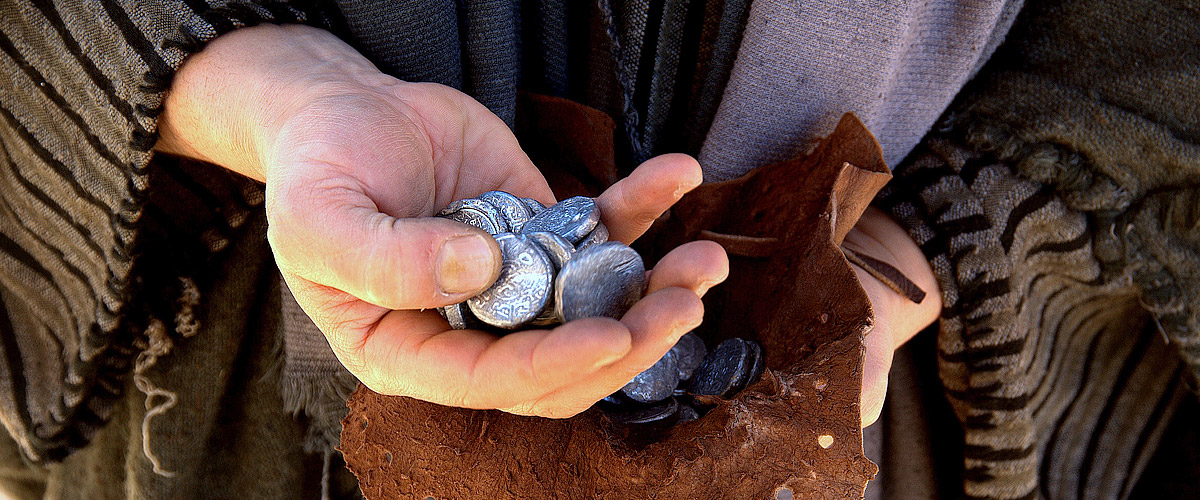It’s pretty important to know what an elder’s job description is for two reasons: firstly, if elders don’t know what they are supposed to be doing, there is a good chance that they won’t do it well. (I apologise, that was very tongue-in-cheek, but also true!) Secondly, if saints are not aware of what their elders are called to be doing, they might find themselves fighting their elders when they are actually just doing their job.
In my previous article, I dealt with the question ‘What Does It Take To Be An Elder?‘ and we discovered that Peter had some really helpful things to say on the topic. I am going to draw on Peter again, picking up on the same passage in 1 Peter 5 where he uses three different words to describe the same leadership role.
In verse 1, Peter uses the word ‘presbuteros’, which is where we get our word ‘elder’. Then in verse 2 he uses the word ‘poimein’ from which we get ‘shepherd’ and the word ‘episcopos’ from which we derive ‘bishop’. I pick up on this because these words all give us subtle shades of meaning as to the responsibilities of an elder.
The Meaning of ‘Elder’
a. ‘Elder’
The idea behind this word is imported from the Old Testament where elders were appointed to carry the responsibility of leadership along with Moses (Numbers 11:16,17). The literal meaning of the word is ‘older’, which signifies the wisdom required for the task.
With the role of ‘eldering’ comes the connotations of being a ‘father’ in the household. For example, we are told that elders care for the people in the ‘household of God’ in a way comparable to how they manage their own households (1 Timothy 3:1-5). The logic is that, “If anyone does not know how to manage his own family, how can he take care of God’s church?” (1 Timothy 3:5, NIV).
Therefore, an elder must be someone of spiritual maturity, even if they are not old in years (1 Timothy 4:12), because someone with so much authority and responsibility within the kingdom should have the necessary spiritual maturity to handle that responsibility with integrity.
b. ‘Shepherd’ and ‘Overseer’
These same two words are used to describe Jesus when He is referred to as the “… Shepherd and Overseer of your souls” (1 Peter 2:25). This is why elders are ‘under-shepherds’ serving beneath the ‘Chief shepherd’.
As Christ provides for and protects the sheep. Elders are called to feed the saints by ministering the Word of God to them and warning them about the dangers of sin and false-teaching (Acts 20:28).
A shepherd is called to go after the lambs that are going astray and to gently lead them back to faith. He speaks words of healing when they have fallen out of the way and have maybe suffered an injury or been ravaged by the wounds of this world.
Jesus said a shepherd is different to a ‘hired hand’, who runs to save his own skin at the first sight of danger. A shepherd loves his sheep and is even willing to put himself in harm’s way to protect them if necessary (John 10:11-12).
Elders Set Doctrine, Discipline and Direction
This is a helpful 3-fold description of some of the responsibilities that are unique to the role of an elder. It is vitally important to know what these distinctives are, because without them a local church will quickly lose its ability to reflect the pure light of Christ to the world.
a. Doctrine
We have already touched on the responsibility that elders have to safeguard the ‘flock’ from being deceived by teachers who pervert the truth. False teachers are described as ‘wolves’ who do great harm to the flock, and elders have a duty to guard against them. Paul warned the Ephesian elders in this way,
“Pay careful attention to yourselves and to all the flock, in which the Holy Spirit has made you overseers, to care for the church of God, which he obtained with his own blood. I know that after my departure fierce wolves will come in among you, not sparing the flock; and from among your own selves will arise men speaking twisted things, to draw away the disciples after them.” (Acts 20:28-30, ESV)
There is a two-fold warning within this passage. Firstly, elders need to be held accountable by other elders and by apostolic voices (in this case, Paul) so that they themselves aren’t deceived. Secondly, elders need to safeguard the people under their care from outside teachings that pervert the true Gospel.
b. Discipline
It is not only false teaching that poses a grave danger to a church. Willful, unrepentant sin is equally dangerous. This kind of sin is dangerous for two reasons. Firstly, believers are called to reflect the holiness of God to the world in order to demonstrate the nature of God and attract them to the light that we have within us. If sin is allowed to run rampant within the church and the church begins to look no different to the world, we tarnish our witness to the Gospel and muddy the name of Christ. Secondly, if sin goes unchecked within the church, sinning believers can influence others to sin and cause them to ‘stumble’ as well.
This is why we are instructed to warn and discipline saints within our church if they are living in sin and refuse to turn away from it (Matthew 18:15-18; 1 Corinthians 5:9-13).
c. Direction
When Jesus writes seven letters to the seven churches of Revelation, he addresses them to the ‘aggelos’ of each church. One meaning of this word is ‘messenger’. It is a fitting description of the role of a lead elder, because it implies that although a human ‘shepherd’ is leading the ‘flock’, God’s intention is that these men would only lead the congregation according to God’s own direction. They simply ‘pass on the message’.
An example of this in the Old Testament is how Moses would only lead the people of God as God led, by direction from the pillar of cloud.
Every local church is facing unique issues and challenges. Thus, the leadership within each church has to lead their church through these challenges under direction of the Holy Spirit. We see this in Paul’s letters addressed to the different churches, each letter written to strengthen and equip them to navigate the specific situations they were facing.
As a good shepherd leads his sheep to ‘green pastures’ where the sheep will flourish, elders within a local church have been given the responsibility of leading those saints into the fullness of their inheritance in Christ.
In Closing
With this instruction from Scripture, I hope you have a renewed appreciation for the vital responsibility that elders carry within the church, and that this would prompt you to pray for them (as a saint) and pay careful attention to the guidance that they give.
It also becomes apparent why Satan has been quite deliberate in corrupting and ‘taking out’ elders from fulfilling their calling. He knows that if he can ‘strike the shepherd, the sheep will scatter’, and this has been tragically born out in more instances than I care to retell.
May the Lord protect and guide our elders as they lead and care for the precious people of God.











